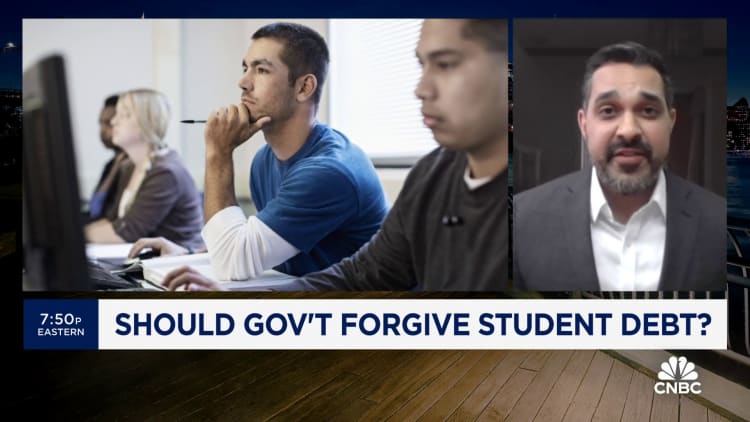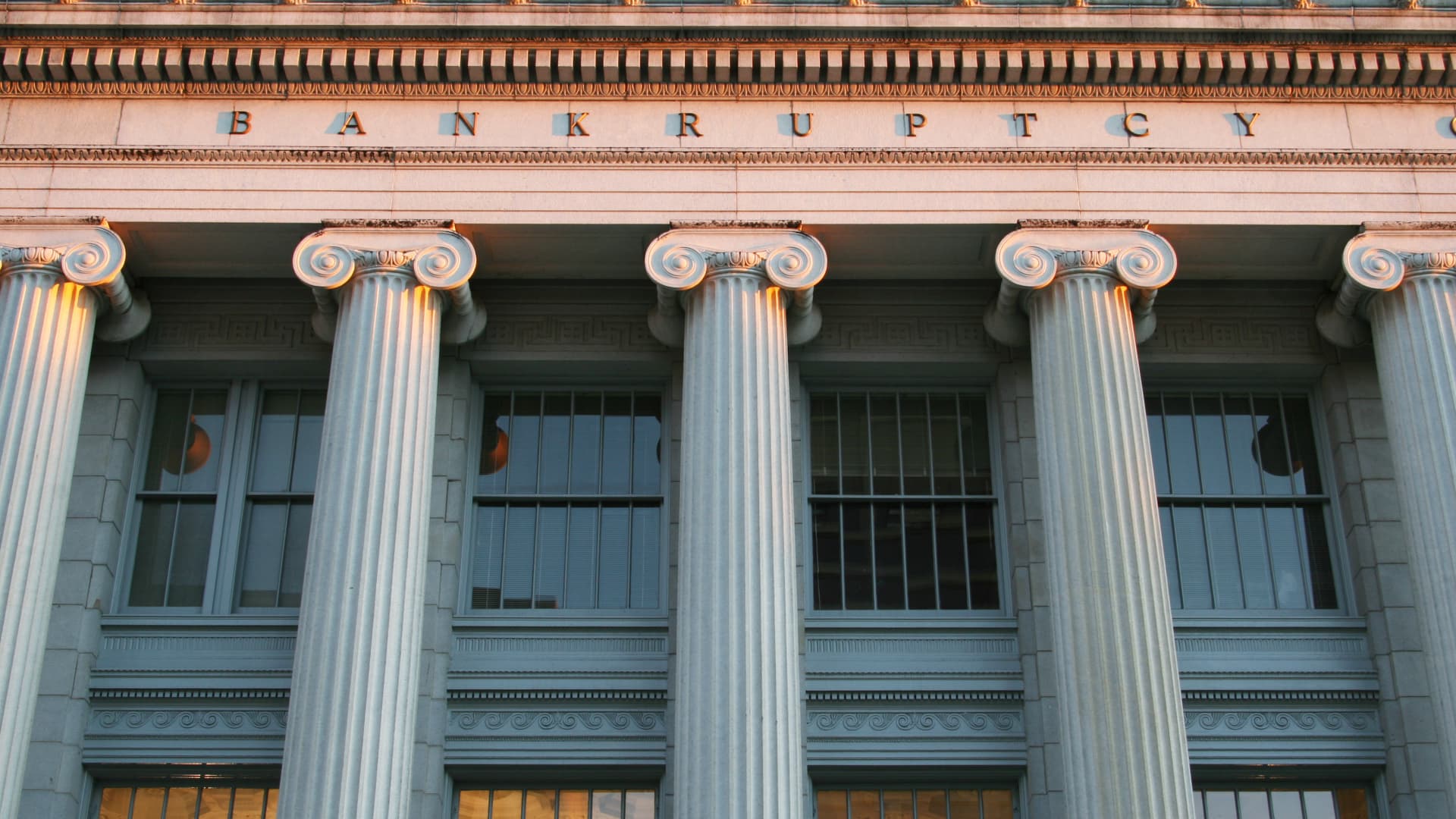Bankruptcy Court. Dayton, Ohio.
Stanrohrer | E+ | Getty Images
The Biden administration’s new student loan bankruptcy policy is making it easier for borrowers to walk away from their debt in court, attorneys say.
“We have gotten forgiveness for a number of clients under the new bankruptcy changes,” said Malissa Giles, a consumer bankruptcy lawyer in Virginia. “The discharge is life changing for them and their families.”
In the fall of 2022, the U.S. Department of Education and the U.S. Department of Justice jointly released updated bankruptcy guidelines aimed at making the process for student loan borrowers less arduous.
More from Personal Finance:
Many think pensions key to achieving American Dream
How to avoid unexpected fees with payment apps
‘Ghosting’ gets more common in the job market
Previously, it was difficult, if not impossible, for most people to part with their education debt in a normal bankruptcy proceeding.
Amid concerns that students would rack up debts for their education and then try to ditch their obligations, policymakers over the years had added extra stipulations for the discharge of student loans in bankruptcy. Borrowers needed to prove “undue hardship,” or a “certainty of hopelessness,” and government lawyers battled most of the requests.

The Biden administration’s updated policy now treats student loans more like other types of debt in bankruptcy court, experts say. Student loan borrowers can fill out a 15-page form, detailing their financial struggles and making their case for a mulligan.
“While the government used to fight discharge aggressively in almost every case, there is now a policy to agree when the borrower can show financial need and a history of good faith efforts to pay the loans,” said Latife Neu, a bankruptcy lawyer in Seattle.
“I’ve helped several people take advantage of the expanded ability to discharge their student loans in bankruptcy,” Neu added.
Student loan borrowers have other options for relief
While borrowers in extreme financial distress may benefit from the more lenient rules, most people should try to avoid bankruptcy, experts say.
Depending on the type of bankruptcy you pursue, that information can stay on your credit report for up to 10 years, making it a challenge to buy a house, apply for other types of loans and even to rent an apartment.
Most borrowers should look for other relief options instead, said higher education expert Mark Kantrowitz.
Federal student loan borrowers have several ways to reduce their debt burden, including income-based plans with $0 monthly payments and economic hardship and unemployment deferments. There are also loan relief opportunities for borrowers with disabilities and cancer.
Lastly, after President Joe Biden’s plan to cancel up to $20,000 in student debt was struck down at the Supreme Court, the president started a new effort to forgive education debt. One of the groups that may qualify are those in financial hardship.
As a result, Kantrowitz said, borrowers might want to wait and see what relief the government is able to deliver before they pursue bankruptcy. The Biden administration may announce its revised forgiveness package as soon as November.
Struggling borrowers who are still considering bankruptcy should talk with a nonprofit credit counselor before they file, he said.







